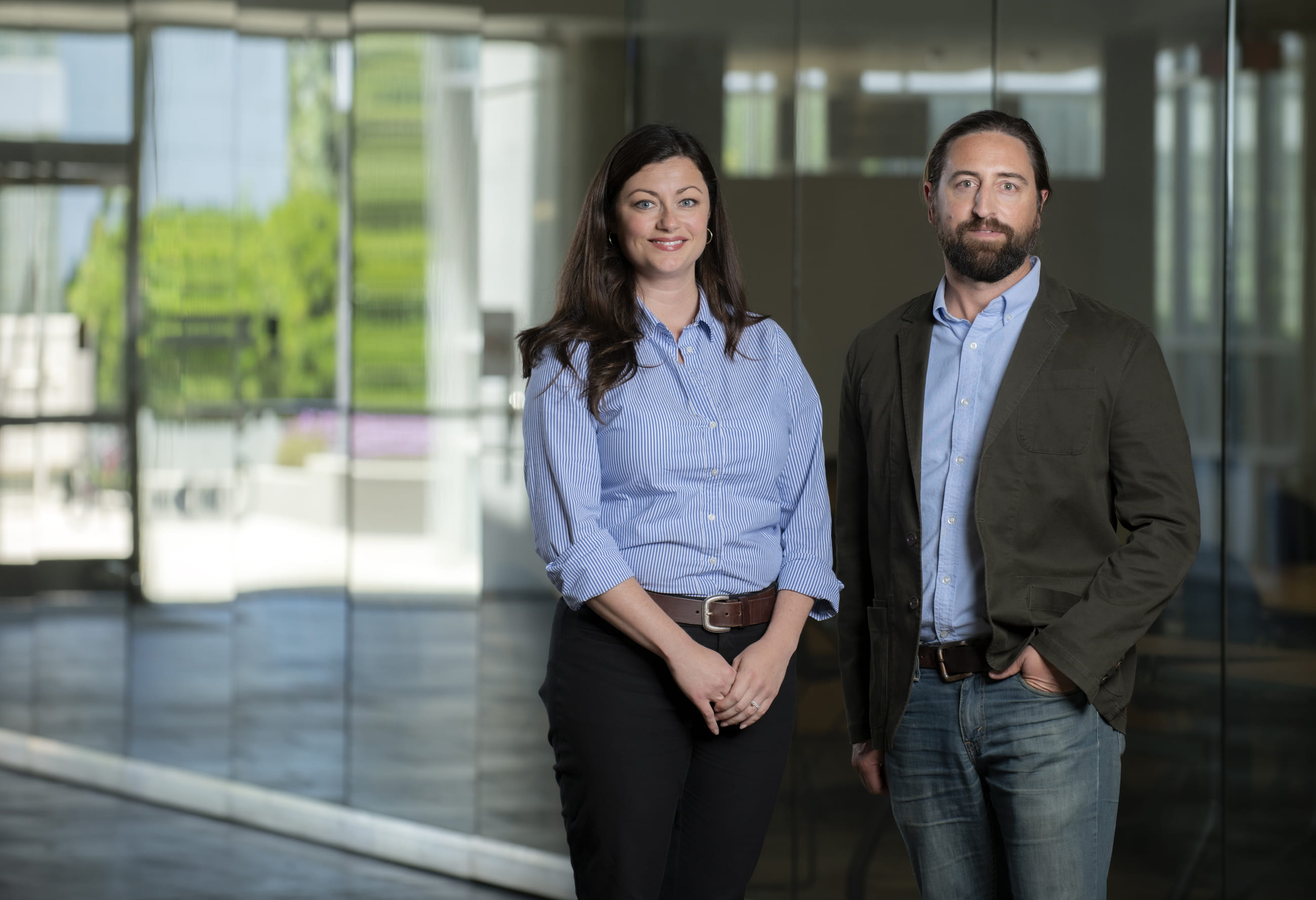Innovation Inc.
Entrepreneurship program turns business students’ visions into real-world ventures<

Consider the thousands of entrepreneurially minded creative talents within the UCI community. Now consider the off-campus world, with its commercial opportunities – and sizeable financial risks.
The Center for Entrepreneurship and Innovation (CEI), recently formed within the UCI Graduate School of Management, melds these worlds, offering students a more seamless transition to business life. Simultaneously, the center enriches the business community by providing fresh ideas and invigorating approaches from a wealth of academically sharpened minds. This marriage of prepara-tion and opportunity reduces risk significantly, and makes success substantially more assured.
Since its launch in January 2003, CEI has emerged as a source for classes, research, speakers and activities that equip, encourage and ultimately reward students seeking to start new companies or develop commercially feasible ideas. The center is a liaison between academia and business, preparation and profit.
“We bring the outside world in, and vice versa,” says Shaheen Husain, the center’s executive director. Husain has found that business leaders and entrepreneurs are eager to volunteer for CEI speaking engagements and sponsorship opportunities. “It’s been easy to recruit people to facilitate workshops. Most have a sincere desire to share their knowledge and mentor those who follow in their footsteps.”
CEI promotes purposeful education with a practical understanding of how to develop new businesses, while giving enterprising students that rare running start. The center already is a central resource crossing academic disciplines.
COMPETITIVE FORCES
According to Husain, a key objective is to become an “engine that drives the commercialization of new technology through research, education and the creation of the climate needed to nurture entrepreneurs and their ideas. If we are able to achieve this goal, we will have a significant, positive impact on the local economy.”
Among center activities is the Irvine Innovation Initiative (I3), which provides GSM students opportunities to work with experienced business leaders. CEI also facilitates entrepreneurship workshops and community speakers, and cooperates with the student-driven Entrepreneur Association.
Moreover, the center organizes a campuswide business plan competition for student teams. The goal includes transforming students’ innovative ideas – scientific, technological or otherwise – into commercial enterprises. The teams are coached by volunteer executives and experienced students. Workshops by expert off-campus speakers provide instruction on compiling financial statements, drafting concept papers and formulating other business plan elements.
Teams must have at least three students, because, as Husain points out, “Most people don’t start businesses by themselves,” which is an important lesson in the “value of human capital.” In 2003-04, 110 students vied for $25,000 in cash awards.
Business plans have focused on ideas as varied as a new clothing line, wireless communications, more efficient windmill blades and cancerous-cell scanning. Previous years’ winners included plans for companies to develop decidedly low-tech sleep apnea pillows and foreign trade software.
“The advisory board says this is a great academic exercise,” Husain notes, “but the final criterion for judging is whether the plan is fundable.” As Husain observes, better business plans ultimately help Orange County by creating businesses that are more likely to succeed.
Recent graduate Leon Glover, M.B.A. ’04 experienced the business plan competition as a submitter and peer adviser, critiquing other student teams’ plans.
“I worked for a venture capital firm for 18 months, where I screened business plans and entrepreneurs,” says Glover, who also has 12 years of software industry experience. Investors are looking for businesses with a solid business plan, including the typical sales, marketing and distribution functions, conservative financial projections, an identifiable customer base, and the likelihood of revenue, he says.
LEARNING FROM EXPERIENCE
Another CEI resource is Mike Benvenuti ’83, M.B.A. ’85, a business plan competition mentor who also serves on the I3program board.
“My primary motivation is to give back to an educational institution that’s been really great to me,” says Benvenuti, who has a bachelor’s in civil engineering and a master’s in finance from UCI. “Those educational tracks really prepared me for success.”
“I was hired out of UCI as an intern,” says Benvenuti, now senior vice president of New Horizons Computer Learning Centers, which sponsors the business plan competition along with Silicon Valley Bank and the law firm of Dorsey & Whitney.
“For me,” Benvenuti says, “the draw is more emotional or psychological. I like being engaged with young inquisitive minds. I’ve mentored students focused on my areas of expertise, tech and communications. I’ve also connected them with other business professionals. That’s a major benefit. They use me as a sounding board and to make connections.”
Glover also champions the school’s strengthening focus on entrepreneurialism. “Given the global economy, you have to have entrepreneurial drive to run a successful business,” he says. “These days, everyone has to be an entrepreneur.”
